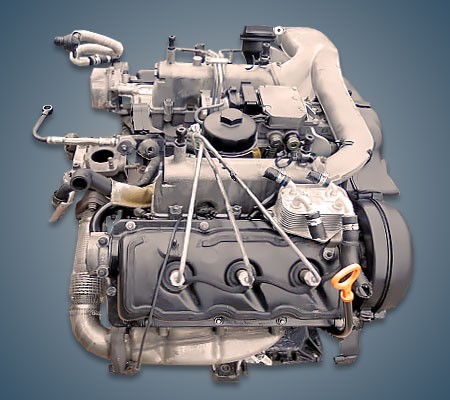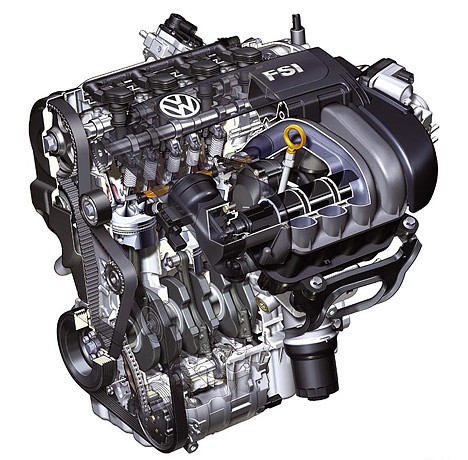
2.5 TDi engine - information and use of the diesel unit
Content
After several years of operation, there were big problems with the injection system, lubrication, the ECU of the unit and the toothed belt. For this reason, the 2.5 TDi engine has a bad reputation. We present the most important information about the engine of the VW concern.
2.5 TDi engine - technical data
Four variants of the unit were installed on cars. Each was equipped with a variable geometry turbine and Bosch direct injection with an electronically controlled distribution pump that generated high pressure. The units had a working volume of 2396 cm3, as well as 6 V-cylinders and 24 valves. They were compatible with both front-wheel drive and 4×4 with manual or automatic transmission.
Versions of this unit and their power
However, individual versions of the 2.5 TDi engine had different outputs. These were 150 hp engines. (AFB/ANC), 155 HP (AIM), 163 HP (BFC, BCZ, BDG) and 180 hp (AKE, BDH, BAU). They provided very good performance, and the unit itself was considered modern. It was a response to the flagship engines of Mercedes and BMW.
Structural solutions used in the unit
For this unit, a cast-iron block with six cylinders arranged in a 90° V was chosen, and a 24-valve aluminum alloy cylinder head was installed on top. The 2.5 TDi engine also used a balancer shaft which was designed to reduce vibration and wobble resulting in a higher work culture.
Defects in the 2.5 TDi model - what causes them?
The most unpleasant problems associated with the operation of the unit include injection malfunctions. The cause was usually a failure of the fuel pump, control electronics, or a magnet that regulates fuel metering.
This was due to the type of components used. The radial distribution pump is more sensitive to impurities in the fuel than the axial type. It is for this reason that mechanical damage to the element occurred quite often.
What is the possible cause of the problems?
It is also pointed out that the failure rate of the 2.5 TDi engine is due to oversights in the production process. Most failures should be easily detected during the testing phase, so it is expected that Volkswagen engineers did not pay enough attention to the tests and the unit was not tested at the right distance.
Important questions in the context of machine operation
It is worth noting that with proper maintenance it was possible to avoid some breakdowns, including expensive ones. We are talking here about the timing system, which had a tendency to break down due to the poor quality of the materials used. A good solution was to change the timing belt every 85 km. km, which is much earlier than recommended by the manufacturer. If the system itself broke, this meant the almost complete destruction of the unit.
If you want to buy a car model equipped with a 2.5 TDi engine, it is better to choose a car made after 2001. Instances of the motorcycle before this date were characterized by a higher failure rate - after 2001, many problems were solved.
What changes have been made to the unit?
Volkswagen has redesigned the unit to get rid of annoying problems. The work included the replacement of injectors, as well as a thorough revision of the architecture of the unit, a change in the timing system.
The most common 2.5 TDi engine malfunctions
The malfunctions that appeared most often were problems with the oil pump, driven by the crankshaft. While the motor is running, the pump drive may fail, leaving the motor without lubrication. As a result, the likelihood of oil pump clogging due to camshaft wear increases.
2.5 TDi engines also have problems with the turbine. This applies to unit models that have traveled more than 200 km. km. Sometimes a significant loss of power is also caused by damage to the EGR valve and flow meter.
What to look for when choosing a car with this unit?
If you want to find a unit option that will be the least accidental, you should look for a 2.5 TDi V6 engine with 155 hp. or 180 hp Euro 3 compliant. The use of these motors is associated with less frequent problems.
2.5 TDi engines were installed in the Audi A6 and A8 models, as well as in the Audi A4 Allroad, Volkswagen Passat and Skoda Superb. Although the vehicles are well equipped and usually available at a fairly attractive price, it is worth thinking twice about buying them, as maintenance costs can be too high.
